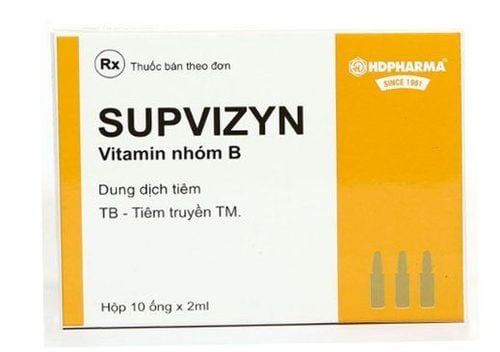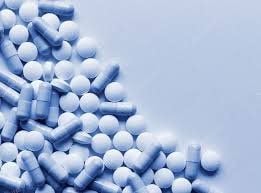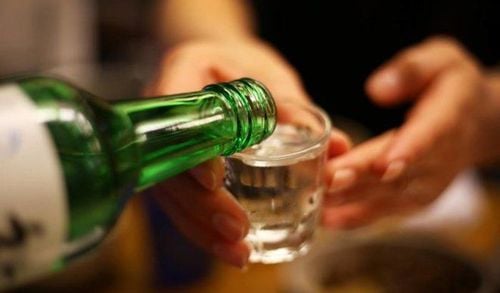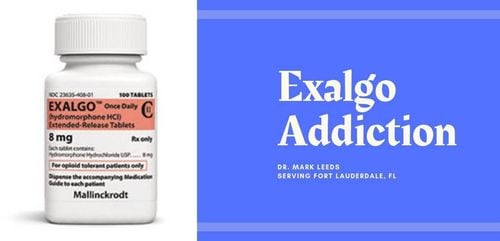This is an automatically translated article.
Sake is considered a traditional wine of the land of cherry blossoms and has become a characteristic culture of Japan. Today, thanks to the trade in goods, sake is not only confined to Japan but is increasingly popular around the world. So is drinking sake good?
1. What is sake made of?
Sake is also known as Japanese rice wine. Although it is called alcohol, sake is produced by a process that is more similar to beer production than to alcohol production. Sake is made from rice, whereby the starch from the rice will be converted into sugar, then fermented into alcohol.
Sake has been around in Japan since ancient times, but modern sake-making techniques began to be developed in the 14th century by monks in temples near Nara, Kyoto and Osaka.
Recently, Japanese sake has gradually gained global popularity. Sake breweries can be found in North America, South America, Australia, as well as other regions throughout Asia. While sake is Japan's "national drink", Japan's alcohol production has begun to decline since the 1970s.
2. Sake Nutrition Facts
A 100g serving of sake contains:
Calories: 134; Protein: 0.5 grams; Fat: 0; Carbohydrate : 5 grams; Fiber: 0; Sugar: 0. In addition, sake contains small amounts of selenium, phosphorus, copper, calcium, zinc and potassium.
3. Is drinking sake good?
Some articles claim that drinking sake is very beneficial for sleep quality and skin, in addition this drink also has anti-inflammatory properties for people with diabetes. However, these articles are based on studies done on sake yeast, an alcohol-free food supplement, not sake. Therefore, more research is needed on the health benefits of sake.
Some of the noted benefits of sake include:
3.1. Aids in digestion Sake contains a type of bacteria that live in lactic acid called lactobacillus. Lactobacillus is a probiotic that can help with digestive problems, especially diarrhea caused by harmful bacteria or diarrhea caused by antibiotic use. Unfortunately, today's sake contains much less lactic acid than in the past. Lactic acid is currently mainly found in samhaeju, Korea's traditional rice wine, rather than sake.
This is explained by the fact that sake fermentation was industrialized by Japanese brewers in the early 20th century, the presence of bacteria playing a much smaller role in the production process. modern appearance.

Rượu sake giúp hỗ trợ tiêu hóa với loại vi khuẩn Lactobacillus có lợi
3.2. Reduces risk of disease Drinking alcohol in moderation can be good for users' health: an average of 1 small drink per day for women and 1-2 drinks per day for men.
A study of all-cause mortality in Japanese men and women has found that moderate drinking significantly reduces some such as cancer and heart disease. Women benefit more for heart health and men benefit more for cancer risk. In addition, moderate alcohol consumption also reduced the risk of ischemic stroke, but did not affect other types of strokes. It should be noted, however, that the incidence of all types of stroke is increased in heavy drinkers. Light to moderate drinkers also have a reduced risk of diabetes. People with diabetes who drink small amounts of sake may have a lower risk of heart disease-related complications. It should be emphasized that the benefit applies only to moderate drinkers of such dosages.
In addition, more research is needed to verify the benefits of moderate sake drinking for various diseases. There are no experts to recommend that non-drinkers start drinking for the sake of their health. In fact, there are many better benefits to choosing a healthy lifestyle that says no to alcohol.
4. Disadvantages of Sake
Drinking any type of alcohol is not without risks, so be careful or avoid using sake in cases like:
Absolutely not drink alcohol if you are or are about to drive; Do not drink sake when you are under the legal drinking age; People who are trying to conceive or are pregnant should not use any alcohol; Especially note not to use alcohol when depressed; Alcoholics or people who cannot control the amount of alcohol when drinking should also not switch to sake. Some risks are also mentioned with alcohol use in general:
4.1. Pregnancy complications Drinking alcohol during pregnancy increases the risk of miscarriage or stillbirth as well as fetal alcohol syndrome disorders (FASDs).
4.2. Drug interactions Alcohol can make some medications ineffective or become toxic. The combination of alcohol and drugs can also make people feel nauseous, drowsy, or lose coordination. More serious complications include breathing problems, internal bleeding, or heart problems.
4.3. Increased risk of certain cancers Women are particularly susceptible to an increased risk of cancer related to alcohol consumption. Moderate drinking increases the risk of all alcohol-related cancers (including cancers of the colon, oral cavity, throat, liver, and esophagus) especially breast cancer. Folate supplements can help reduce the risk because people who drink alcohol often have reduced folic acid.
Both men and women who drink sake have an increased risk of upper urothelial carcinoma - a type of cancer of the urethra. A typical serving of sake contains about 23g of alcohol, however this amount of alcohol exceeds the risk of upper urinary tract carcinoma (15g alcohol/day).
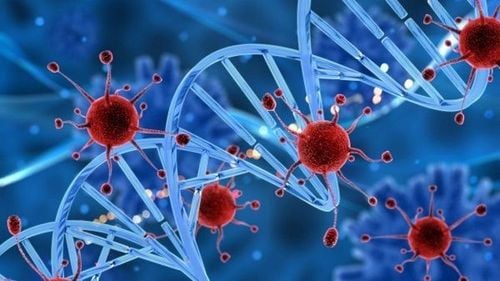
Rượu Sake có thể làm tăng nguy cơ mắc một số loại bệnh ung thư
4.4. Other health risks Excessive consumption of any type of alcohol carries a number of health risks. In addition to the risk of cancer, heavy drinkers may have the following:
High blood pressure; Heart disease; Liver failure; Stroke ; Pancreatitis; Alcohol withdrawal syndrome; Drinking a lot of alcohol in a short time can lead to alcohol poisoning and alcohol-related injuries. Sake can be good if drunk in moderation. Therefore, based on your health status and control, you can use this alcohol in an appropriate amount.
Please dial HOTLINE for more information or register for an appointment HERE. Download MyVinmec app to make appointments faster and to manage your bookings easily.
Reference source: webmd.com



